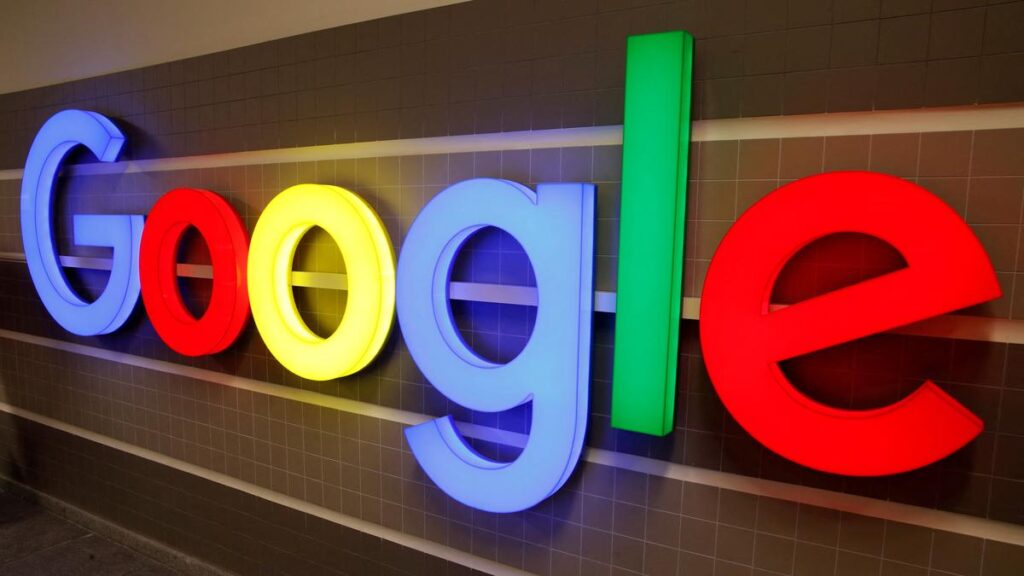
Google settles Android TV antitrust case in India with ₹20 crore payout
Google Android TV Settlement: Tech Giant Pays ₹20 Crore in CCI Antitrust Case
The Google Android TV Settlement resolves a four-year investigation into alleged anti-competitive practices in the smart TV operating system market.
Table of Contents
In a landmark decision, the Competition Commission of India (CCI) has approved a Google Android TV settlement worth ₹20.24 crore, resolving allegations that the tech giant abused its dominant position in the smart TV operating system market. This settlement marks the first case to be resolved under the amended Competition Act, which introduced settlement and commitment provisions in 2023.
The Google Android TV settlement comes after a four-year investigation into Google’s licensing agreements with smart TV manufacturers. While the majority of the Commission accepted the settlement, the decision was not unanimous, with one member issuing a strong dissent that questioned whether the terms adequately address the underlying anti-competitive concerns.
Settlement Highlights
The Google Android TV settlement includes a ₹20.24 crore payment calculated based on Google’s Android TV revenue, including YouTube and Play Store earnings, with a 15% discount applied. Additionally, Google has committed to significant changes in how it licenses its Android TV operating system in India.
Background of the Google Android TV Settlement Case
The case that led to the Google Android TV settlement was initiated in 2020, targeting Google LLC, its Indian subsidiary, and smart TV manufacturers Xiaomi Technology India and TCL India Holdings. The investigation stemmed from complaints that Google’s licensing agreements with TV manufacturers imposed unfair restrictions that harmed competition in the smart TV ecosystem.
Following a detailed investigation, the CCI’s Director General confirmed Google’s dominant position in the licensable smart TV operating system market in India. The investigation found evidence supporting allegations that Google’s agreements unfairly restricted manufacturers’ ability to develop competing products and forced them to pre-install Google’s applications.
Rather than contest these findings, Google opted to propose a settlement under the CCI’s 2024 Settlement Regulations. This approach allowed the company to resolve the case without admitting guilt while committing to modify its business practices in India’s smart TV market.
Anti-Competitive Practices Addressed in the Google Android TV Settlement
The Google Android TV settlement addresses several alleged anti-competitive practices that were central to the CCI’s investigation. These accusations highlight how Google supposedly leveraged its dominant Android operating system to maintain control over the smart TV ecosystem.
| Alleged Anti-Competitive Practice | Competitive Impact |
|---|---|
| Mandatory app bundling through Television App Distribution Agreement (TADA) | Forced pre-installation of Google apps like Play Store and YouTube, limiting manufacturers’ choice |
| Android Compatibility Commitments (ACC) | Prevented manufacturers from using alternative Android versions (“forks”) |
| Tying YouTube to Play Store | Leveraged YouTube’s popularity to ensure Play Store distribution |
| Hardware specifications requirements | Imposed specific technical requirements that increased manufacturing costs |
| Mandatory Google button on remote controls | Required physical integration of Google services into device hardware |
The CCI’s investigation concluded that these practices potentially violated Section 4 of India’s Competition Act, which prohibits the abuse of dominant market position. The Google Android TV settlement was designed to address these concerns by modifying the company’s licensing approach in the Indian market.
Terms of the Google Android TV Settlement Agreement
Central to the Google Android TV settlement is Google’s proposed “New India Agreement” that modifies how it licenses its software to smart TV manufacturers in India. This new approach aims to provide manufacturers with greater flexibility and reduce barriers to competition in the smart TV market.
Key Commitments in the Google Android TV Settlement
- Standalone licensing: Google will offer stand-alone licenses for the Play Store and Google Play Services for Android smart TVs in India, without requiring the pre-installation of other Google apps like YouTube
- Fee-based approach: The new licensing agreement will be available for five years to all manufacturers
- Non-exclusive scope: The agreement will be open to manufacturers using competing systems like Tizen or Roku OS
- ACC waiver: Google will waive TADA’s Android Compatibility Commitments requirement for devices that don’t include Google apps
- Fork development: Manufacturers will be allowed to develop and sell Android forked devices, including smartwatches and phones
- Certification continuity: Existing certification processes for devices will continue until 2029
The Commission’s majority, led by Chairperson Ravneet Kaur and Members Sweta Kakkad and Deepak Anurag, concluded that these commitments would significantly improve market conditions by giving manufacturers more flexibility to customize their devices and compete effectively. They deemed the five-year duration of the Google Android TV settlement reasonable, as it provides a time-bound framework that facilitates effective monitoring.
The ₹20.24 crore settlement amount was calculated based on Google’s revenue from Android TV in India, including earnings from YouTube and the Play Store, with a 15% discount applied as per regulatory guidelines.
The Dissenting View on the Google Android TV Settlement
Despite majority approval, the Google Android TV settlement faced significant criticism from within the Commission itself. CCI Member Anil Agrawal issued a detailed dissent, arguing that the settlement fails to adequately address the anti-competitive issues identified during the investigation.
Key Points from Agrawal’s Dissent
“I am of the view that there must be only one agreement, with or without fee, for the licensing of Google Applications in the relevant market which sufficiently addresses the identified anti-competitive issues… the Settlement Proposal does not address these issues, it fails to inspire confidence and merits unequivocal rejection.”
Agrawal’s primary concern was that Google’s plan to continue offering the original TADA alongside the new agreement effectively preserves anti-competitive practices. He argued that several problematic elements remain unaddressed in the Google Android TV settlement, including:
- The continued bundling of mandatory apps under certain agreements
- Requirements for Google’s button on TV remote controls
- The creation of a parallel licensing structure rather than a complete replacement of the problematic TADA
This fractured verdict highlights the complexity of regulating tech giants’ business practices and the challenges in determining what constitutes an adequate remedy for anti-competitive behavior. The dissent raises important questions about whether the Google Android TV settlement represents meaningful reform or merely a cosmetic change to Google’s business practices in India.
Implications of the Google Android TV Settlement for the Smart TV Market
The Google Android TV settlement is expected to have significant implications for India’s growing smart TV market, potentially altering the competitive landscape and consumer options. The settlement’s impact will be felt across the ecosystem, from manufacturers to app developers and consumers.
For smart TV manufacturers, the settlement promises greater flexibility in several key areas. They can now choose to license only the Play Store without being required to include YouTube, potentially opening the door to partnerships with competing video streaming platforms. The ability to develop Android fork devices without restrictions could also foster innovation and differentiation in the market.
Potential Market Changes
The Google Android TV settlement could lead to more diverse Android-based operating systems for smart TVs in India, increased competition in app stores, and greater hardware customization by manufacturers seeking to differentiate their products.
For consumers, these changes might eventually translate into more diverse smart TV options with different user interfaces, pre-installed applications, and feature sets. However, the practical impact will depend on how manufacturers utilize their new flexibility and whether Google’s parallel licensing structure truly enables meaningful competition.
App developers might benefit from potentially reduced barriers to entry if alternative app distribution channels emerge as a result of the Google Android TV settlement. However, the dominant position of the Google Play Store is likely to persist given its established ecosystem and user base.
Regulatory Significance of the Google Android TV Settlement
The Google Android TV settlement represents a significant milestone in India’s approach to regulating digital markets. As the first case resolved under the amended Competition Act’s settlement provisions, it establishes important precedents for how tech giants can negotiate with Indian regulators to resolve antitrust concerns.
This case demonstrates India’s increasingly assertive stance toward regulating global technology companies. The CCI has emerged as an important counterweight to the market power of digital platforms, joining regulatory bodies in the European Union and United States in scrutinizing potentially anti-competitive practices by tech giants.
Evolving Regulatory Landscape
The Google Android TV settlement is part of a broader trend of increased regulatory scrutiny of Google in India. The company faces multiple investigations, including a major probe into its Android mobile ecosystem and Play Store billing policies.
The fractured verdict, however, highlights the challenges regulators face in crafting effective remedies for complex digital markets. The dissenting opinion raises important questions about whether settlements that allow companies to maintain parallel business practices truly address underlying competition concerns.
Going forward, the CCI’s monitoring of Google’s compliance with the Android TV settlement terms will be crucial in determining whether the agreement delivers meaningful change or merely provides a legal shield for continuing potentially problematic business practices in a slightly modified form.
Frequently Asked Questions About the Google Android TV Settlement
| How much is Google paying in the Android TV settlement? | Google is paying ₹20.24 crore (approximately $2.4 million) as part of the Google Android TV settlement with the CCI. This amount was calculated based on Google’s Android TV revenue in India, including YouTube and Play Store earnings, with a 15% discount applied. |
| What changes will Google make to its Android TV licensing? | Under the Google Android TV settlement, Google will offer standalone licenses for Play Store and Google Play Services without requiring other apps like YouTube to be pre-installed. It will also allow manufacturers to develop Android fork devices and waive certain compatibility requirements. |
| Why did one CCI member oppose the settlement? | CCI Member Anil Agrawal opposed the Google Android TV settlement because he believed it didn’t adequately address anti-competitive issues. He argued that continuing to offer TADA alongside the new agreement preserves problematic practices and called for a complete replacement rather than a parallel structure. |
| How long will the settlement terms remain in effect? | The Google Android TV settlement terms will remain in effect for five years, with existing certification processes for devices continuing until 2029. The CCI determined this timeframe was reasonable for monitoring compliance and market impact. |
| Is this Google’s first antitrust case in India? | No, this is not Google’s first antitrust case in India. The company faces multiple investigations by the CCI, including probes into its Android mobile ecosystem and Play Store billing policies. The Android TV settlement is, however, the first case resolved under the amended Competition Act’s settlement provisions. |






